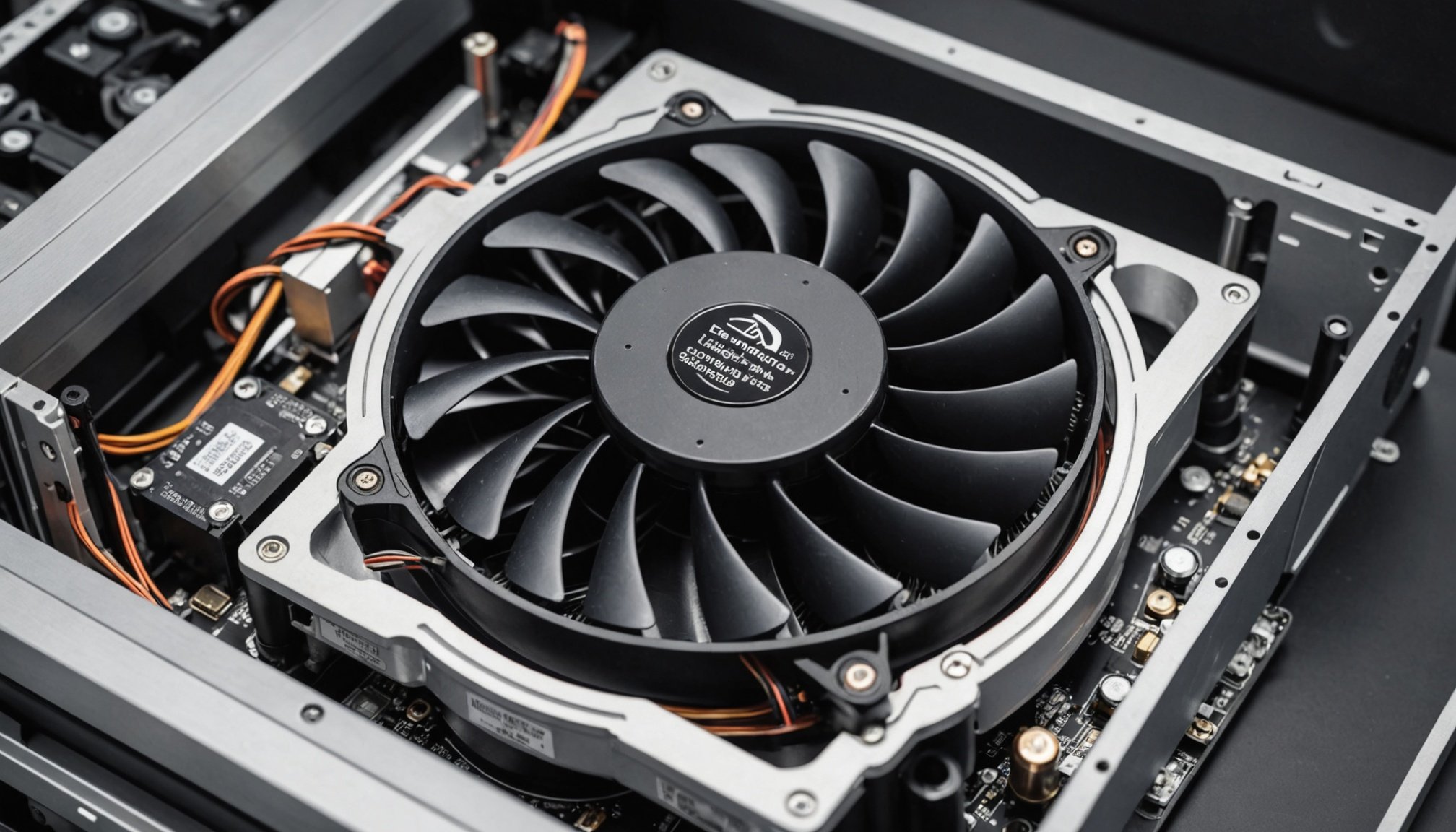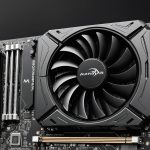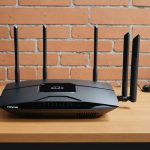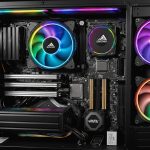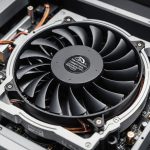The Impact of Various Cooling Solutions on the Lifespan of PC Components
When it comes to building or maintaining a PC, especially for gaming or high-performance applications, the cooling system is one of the most critical components to consider. The right cooling solution can significantly extend the lifespan of your PC’s components, enhance performance, and prevent thermal throttling. In this article, we will delve into the different cooling solutions available, their impact on component lifespan, and provide practical advice on choosing the best option for your needs.
Understanding the Importance of Cooling
Cooling is essential for managing the heat generated by PC components, particularly the CPU and GPU. These components produce a significant amount of heat during operation, which can lead to overheating if not managed properly. Overheating can result in reduced performance, increased power consumption, and a shortened lifespan of the components.
"Un mauvais choix peut conduire à une surchauffe, diminuant ainsi la performance PC et réduisant la durée de vie des composants."[1]
Types of Cooling Solutions
There are primarily two types of cooling solutions: air cooling and liquid cooling. Each has its own set of advantages and disadvantages.
Air Cooling
Air cooling is the most common and cost-effective method. It uses heat sinks and fans to dissipate heat from the components.
In parallel : Maximize Your Gaming with Our Comprehensive Guide to Enhancing the Alienware Aurora R11 GPU!
Heat Sinks and Fans
Heat sinks are typically made of materials with high thermal conductivity, such as copper or aluminum. These materials help in efficient heat transfer from the component to the heat sink, which is then dissipated by the fans.
"Les ailettes de cuivre offrent une meilleure efficacité thermique grâce à leur haute conductivité, tandis que l’aluminium est préféré pour sa légèreté et son coût moindre."[1]
Advantages and Disadvantages
- Advantages:
- Cost-effective
- Easy to install
- Requires less maintenance
- Suitable for most general-use PCs
- Disadvantages:
- Less efficient than liquid cooling
- Can be noisy
- Dependent on airflow within the case
Examples of Air Coolers
- Be Quiet Pure Rock 2: Known for its silent operation and efficient heat dissipation, making it a good choice for mid-range CPUs[3].
- Cooler Master MA612 Stealth: Offers high performance with its dual 120mm fans and six heat pipes, suitable for high-TDP CPUs[3].
Liquid Cooling
Liquid cooling, or watercooling, uses a liquid coolant to absorb heat from the components and transfer it to a radiator where it is dissipated.
How Liquid Cooling Works
Liquid cooling systems involve a pump, a radiator, and tubing. The liquid coolant absorbs heat from the CPU or GPU and carries it to the radiator, where it is dissipated by fans.
"Le refroidissement liquide dépend moins de la circulation de l'air à l'intérieur du châssis. Il est donc plus efficace pour refroidir des composants spécifiques."[2]
Advantages and Disadvantages
- Advantages:
- More efficient than air cooling
- Quieter operation
- Better heat dissipation for high-performance components
- Disadvantages:
- More complex and expensive
- Requires careful installation and maintenance
- Risk of leaks
Types of Liquid Cooling Systems
- All-In-One (AIO) Liquid Coolers: Pre-assembled units that are easy to install and require minimal maintenance[2].
- Custom Liquid Cooling Loops: More flexible and customizable but require more expertise and time to set up[2].
Impact on Component Lifespan
The choice of cooling solution has a significant impact on the lifespan of PC components.
Thermal Management
Effective thermal management prevents overheating, which is a major factor in reducing the lifespan of components. Here are some key points to consider:
- Heat Transfer: Materials with high thermal conductivity, like copper, are essential for efficient heat transfer[1].
- Heat Dissipation: The ability of the cooling system to dissipate heat effectively determines the temperature of the components. Liquid cooling systems are generally better at heat dissipation than air cooling systems[2].
Preventing Thermal Throttling
Thermal throttling occurs when components reduce their performance to prevent overheating. A good cooling system prevents thermal throttling, ensuring that your components operate at their full potential.
"Un mauvais choix peut conduire à une surchauffe, diminuant ainsi la performance PC et réduisant la durée de vie des composants."[1]
Practical Considerations and Advice
When choosing a cooling solution, several factors need to be considered:
Compatibility
Ensure that the cooling system is compatible with your PC’s configuration. This includes checking the socket compatibility for CPU coolers and the space available in the case for radiators and fans.
"La compatibilité matériel PC est cruciale lors du choix de matériaux de refroidissement. Il faut s’assurer que les composants choisis correspondent à votre configuration, qu’il s’agisse d’un PC préconstruit ou d’une construction personnalisée."[1]
Noise Level
For those who value a quiet operating environment, liquid cooling systems are generally quieter than air cooling systems.
Maintenance
Liquid cooling systems require more maintenance than air cooling systems. Regular checks for leaks and ensuring the system is clean are essential.
Comparison Table: Air Cooling vs. Liquid Cooling
| Feature | Air Cooling | Liquid Cooling |
|---|---|---|
| Cost | Generally less expensive | More expensive |
| Efficiency | Less efficient than liquid cooling | More efficient |
| Noise | Can be noisy | Quieter operation |
| Maintenance | Easy to install and maintain | More complex installation and maintenance required |
| Compatibility | Easy to find compatible components | Requires careful selection to ensure compatibility |
| Heat Dissipation | Dependent on airflow within the case | Better heat dissipation |
| Risk of Leaks | No risk of leaks | Risk of leaks |
| Customization | Limited customization options | More flexible and customizable |
Detailed Bullet Point List: Factors to Consider When Choosing a Cooling Solution
- Component Compatibility:
- Ensure the cooler is compatible with your CPU or GPU socket.
- Check the dimensions to ensure it fits within your case.
- Thermal Performance:
- Look for coolers with high thermal conductivity materials.
- Consider the TDP (Thermal Design Power) of your components.
- Noise Level:
- If silence is a priority, opt for liquid cooling or silent fans.
- Maintenance:
- Liquid cooling systems require regular checks for leaks and cleanliness.
- Budget:
- Air cooling is generally more budget-friendly.
- Liquid cooling can be more expensive but offers better performance.
- Installation Complexity:
- Air coolers are typically easier to install.
- Liquid cooling systems can be more complex and require more expertise.
- Durability:
- Consider the lifespan of the cooling system; liquid cooling AIO systems typically last 5-7 years[3].
Real-World Examples and Anecdotes
For gaming PCs, where high performance is crucial, liquid cooling systems are often the preferred choice. Here’s an example:
- Gaming PC Setup: A user building a gaming PC with an AMD Ryzen 9 and an NVIDIA GeForce RTX 3080 might opt for a liquid cooling system to manage the high heat output of these components. This ensures that the system runs at optimal temperatures, preventing thermal throttling and extending the lifespan of the components.
Choosing the right cooling solution is pivotal for the performance and lifespan of your PC’s components. Whether you opt for air cooling or liquid cooling, understanding the thermal management needs of your system is crucial. Here are some final tips:
- Assess Your Needs: Determine the thermal requirements of your components and choose a cooling solution that meets those needs.
- Consider Your Budget: Balance performance with cost; air cooling can be sufficient for general use, while liquid cooling is better for high-performance applications.
- Plan for Maintenance: Regularly check and maintain your cooling system to ensure it operates efficiently and safely.
By making an informed decision about your cooling solution, you can ensure your PC runs smoothly, efficiently, and lasts longer.

